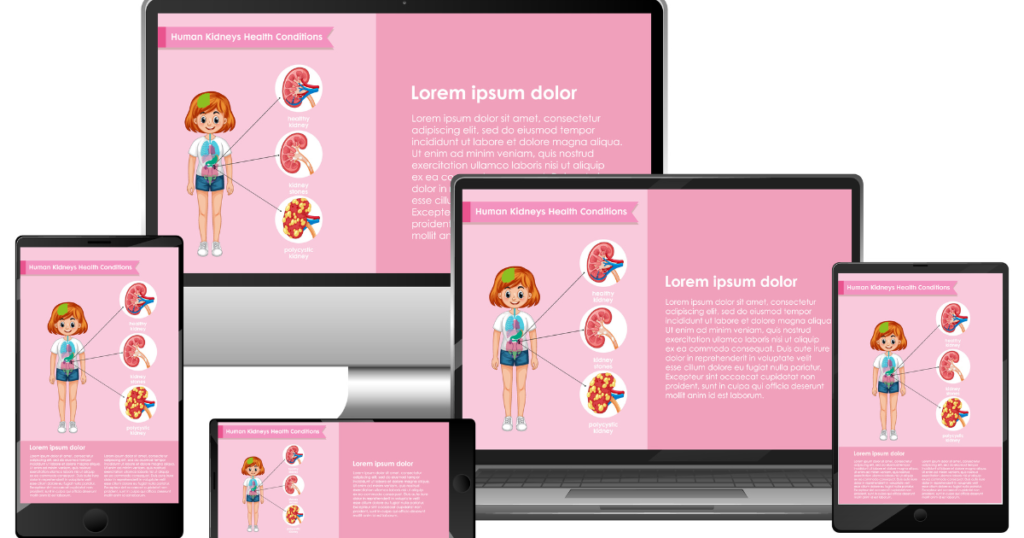In today’s digital-first world, having a professional and engaging online presence isn’t optional; it’s essential. For small businesses across the USA, Small business web development USA plays a crucial role as a virtual storefront, marketing platform, and communication hub. Let’s dive into why web development is a game-changer, what makes a website effective, and how to avoid common pitfalls.
Table of Contents
Why Small Businesses Need a Website

Building Credibility
A website is more than just a digital address; it’s a trust signal. In an era where consumers turn to the internet for everything—from researching services to reading reviews—not having a website can harm your credibility. A well-designed site showcases your professionalism and builds confidence in your brand. Imagine your website as the handshake you’d offer during a face-to-face meeting. It’s your first chance to impress potential clients.
Enhancing Accessibility
A website ensures that your business is always open. Unlike physical stores that operate within certain hours, your site is available 24/7. Customers can explore your offerings, contact you, and even make purchases at their convenience. For small businesses, this kind of accessibility is invaluable.
Expanding Reach
With a website, your business is no longer confined to a local audience. Whether you’re a bakery in Chicago or a boutique in Austin, you can attract and engage customers nationwide or even globally.
Key Elements of a Small Business Website
Creating a website is not just about having an online presence; it’s about having an impactful one. Here are the essential elements every small business website should have:
User-Friendly Design
A cluttered website can turn visitors away faster than you can say “web development.” Prioritize simplicity, intuitive navigation, and a clean layout. Make sure users can easily find information without having to dig through layers of content.
Mobile Responsiveness
More than half of web traffic comes from mobile devices. If your site doesn’t look or function well on a smartphone or tablet, you’re alienating a huge chunk of your audience. Mobile responsiveness isn’t a luxury—it’s a necessity.
SEO-Optimized Content
A website without visitors is like a shop in the middle of the desert. Search engine optimization (SEO) ensures that your website appears in search results when potential customers look for your products or services. By incorporating relevant keywords, creating quality content, and optimizing metadata, your website can climb search engine rankings and attract more traffic.
Clear Calls to Action (CTAs)
Whether it’s “Contact Us,” “Buy Now,” or “Learn More,” clear and compelling CTAs guide visitors toward taking specific actions. These are crucial for converting casual browsers into loyal customers.
Fast Loading Speed
Patience is not a virtue when it comes to website visitors. A slow-loading site can frustrate users and cause them to leave before exploring your content. Optimizing images, leveraging caching, and minimizing code can help improve your site’s performance.
Benefits of Hiring a Professional Web Developer
Expertise and Experience
Professional web developers bring expertise that can save you from costly mistakes. They understand the nuances of creating a website that’s both visually appealing and technically robust. From selecting the right hosting platform to integrating advanced features, they ensure your website functions seamlessly.
Time-Saving Solutions
Running a small business is demanding, and building a website on your own can be a time-consuming endeavor. By hiring a professional, you free up time to focus on what you do best—growing your business.
Customization and Scalability
Professionals can tailor your website to meet your specific needs and ensure it’s scalable as your business grows. Whether you need e-commerce functionality or advanced analytics, they’ve got you covered.

Choosing the Right Web Development Partner
Local Expertise Matters
When selecting a web development partner, consider their understanding of the U.S. market. Local developers are often more attuned to the preferences and expectations of your target audience. They can also provide more personalized support.
Portfolio and Reviews
Always review a developer’s portfolio to assess the quality of their work. Look for reviews and testimonials to gauge their reliability and customer satisfaction levels.
What to Look for in Client Testimonials
Focus on reviews that mention communication, timely delivery, and after-sales support. These factors are as important as the technical aspects of web development.
Affordable Web Development Services in the USA
Tailored Packages for Small Businesses
Many web development agencies in the USA offer affordable packages designed specifically for small businesses. These packages often include basic design, hosting, and ongoing maintenance at a price point that won’t break the bank.
Open Source Solutions
Platforms like WordPress, Joomla, and Shopify are popular for small businesses because they are cost-effective and highly customizable. Open-source platforms allow you to own and control your website while keeping development costs low.

Common Web Development Mistakes to Avoid
Overloading Features
Trying to include too many features can overwhelm users and make your website difficult to navigate. Focus on simplicity and prioritize the functionalities that matter most to your audience.
Neglecting Updates
A website requires regular updates to stay secure and functional. Neglecting these can leave your site vulnerable to cyber threats and performance issues.
Ignoring Analytics
Without tracking performance, you won’t know what’s working and what isn’t. Tools like Google Analytics provide insights into user behavior, helping you make informed decisions about improvements.
Future Trends in Small Business Web Development
AI Integration
Artificial intelligence is revolutionizing web development. From AI-powered chatbots to personalized user experiences, integrating AI can give your website a competitive edge.
Voice Search Optimization
As voice search becomes more prevalent, optimizing your site for this technology is crucial. This includes focusing on natural language keywords and ensuring fast load times.
Interactive Content
Features like quizzes, polls, and interactive infographics can engage users and keep them on your site longer. They’re also great for gathering valuable customer insights.
Enhanced Security Measures
With the rise in cyber threats, robust security measures such as SSL certificates and two-factor authentication are becoming standard.

Conclusion
A website isn’t just a digital asset; it’s a strategic tool for small businesses in the USA to build credibility, expand their reach, and boost their bottom line. By investing in professional web development and staying ahead of trends, you can create a site that not only meets but exceeds your business goals. Remember, a well-crafted website is the foundation of your online presence and a key to long-term success.
FAQs
1. How much does small business web development cost in the USA?
The cost varies widely depending on complexity and features but typically ranges from $1,000 to $10,000.
2. Do I need a custom website or a template-based one?
It depends on your needs and budget. Templates are cost-effective, while custom websites offer unique branding and functionality.
3. How long does it take to develop a small business website?
Most websites take 4-8 weeks to design and develop, depending on their complexity.
4. What are the best platforms for small business websites?
Popular platforms include WordPress, Wix, and Shopify due to their flexibility, ease of use, and scalability.
5. Can I manage my website after it’s built?
Yes! Most websites are built with user-friendly content management systems (CMS) that allow you to make updates and manage content effortlessly.

